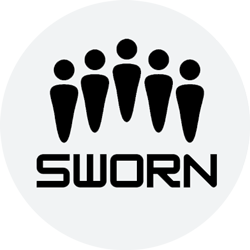The Crucial Role of Sleep Environment in the Health and Well-Being of First Responders
The impact of the sleep environment on the health of first responders is a crucial area of research, particularly when considering the demanding schedules and high-stress environments these professionals face. First responders, including firefighters, emergency medical services (EMS) personnel, and law enforcement officers, often experience sleep disturbances and disorders that can significantly affect their health and performance. This blog post delves into the various aspects of the sleep environment that influence the health of first responders, highlighting the importance of optimizing sleep quality and duration.
Unique Challenges in Sleep for First Responders
First responders face unique challenges that can disrupt their sleep cycles. Long and irregular work shifts, exposure to traumatic events, and the need for constant vigilance can all contribute to sleep deprivation. This lack of rest can lead to a range of negative health outcomes, from decreased cognitive and physical performance to an increased risk of chronic diseases.
Key Sleep Environment Factors
Noise
Noise pollution is a significant issue in the sleep environment for first responders. High levels of noise can disrupt sleep patterns and quality, leading to fatigue, irritability, and decreased cognitive function. Studies have shown that noise levels above 55 decibels can interfere with sleep stages, especially REM sleep, which is critical for cognitive function and mood regulation. Therefore, minimizing noise in the sleep environment is essential for first responders.
Light and Darkness
Light exposure can also impact sleep quality. The use of blackout curtains or noise-reducing blinds can help regulate light exposure and improve sleep. This is particularly important for first responders who may need to sleep during the day due to their shift schedules. Additionally, exposure to artificial light before bedtime can suppress melatonin production, making it more challenging to fall asleep.
Temperature
Temperature is another crucial factor. Optimal sleep temperatures are generally between 15°C and 20°C (59°F to 68°F). Higher temperatures can lead to increased heart rate, blood pressure, and body temperature regulation, disrupting sleep quality. Maintaining a comfortable temperature can significantly improve sleep duration and quality.
Sleep Hygiene
Adopting good sleep hygiene practices is essential for first responders. This includes establishing a consistent sleep schedule, avoiding large meals, caffeine, and alcohol before bedtime, and limiting screen time before sleep. These habits can help regulate the body’s internal clock and improve the quality of sleep.
Sleep Disorders
First responders are at a higher risk of developing sleep disorders due to their demanding work schedules and stressful environments. Sleep disorders such as sleepwalking, sleep terrors, and restless leg syndrome can be particularly problematic. Recognizing and addressing these disorders is vital for maintaining overall health and performance.
Mental Health
Sleep and mental health are closely linked. Sleep deprivation can exacerbate conditions such as anxiety, depression, and post-traumatic stress disorder (PTSD). First responders who experience chronic sleep deprivation may find themselves more susceptible to mental health issues, which can further compound the effects of sleep disruption.
Physical Health
Chronic sleep deprivation can lead to a range of physical health problems, including increased risk of cardiovascular disease, obesity, and certain cancers. Maintaining adequate sleep duration is essential for overall physical health and well-being.
Recommendations for Better Sleep
Individual Strategies
First responders can implement the following strategies to improve their sleep environment:
- Establish a Sleep Schedule: Consistently go to bed and wake up at the same time.
- Create a Dark and Quiet Environment: Use blackout curtains and noise-reducing accessories.
- Maintain a Comfortable Temperature: Ensure the room is at a comfortable temperature.
- Avoid Stimulants Before Bed: Limit caffeine and alcohol intake before sleep.
- Practice Relaxation Techniques: Engage in calming activities before bed to promote relaxation.
Organizational Support
Organizations can support first responders by:
- Providing Education and Resources: Offer training and resources on sleep hygiene and stress management.
- Flexible Scheduling: Implement flexible work schedules to ensure adequate sleep.
- Monitoring and Support: Regularly monitor sleep quality and provide support for sleep disorders.
- Stress Management Programs: Implement programs to manage stress and promote mental health.
Future Research Directions
Future research should focus on:
- Impact of Different Work Schedules: Study the effects of different work schedules, including rotating shifts, on sleep quality and duration.
- Sleep Disorders in First Responders: Conduct further investigations into the prevalence and impact of sleep disorders among first responders.
- Interventions for Sleep Quality: Develop and evaluate interventions aimed at improving sleep quality in first responders, such as sleep coaching and cognitive behavioral therapy for insomnia (CBT-I).
Conclusion
The sleep environment has a significant impact on the health and performance of first responders. By understanding and addressing the factors that affect sleep quality, first responders can optimize their sleep and improve their overall health and well-being. Implementing individual strategies, organizational support, and conducting further research will help ensure that first responders receive the necessary resources to maintain healthy sleep habits and perform effectively in their demanding roles.
Sources
- NSCA’s TSAC Report: “Good Night – Sleep and First Responders”
- Journal of Clinical Sleep Medicine: “Sleep is essential to health”
- International Association of Fire Chiefs (IAFC): “Effects of Sleep Deprivation on Fire Fighters and EMS Responders”
- ScienceDirect: “The effects of sleep on firefighter occupational performance and health”
- National Center for Biotechnology Information (NCBI): “Prevalence of sleep disorders among first responders for medical emergencies”



